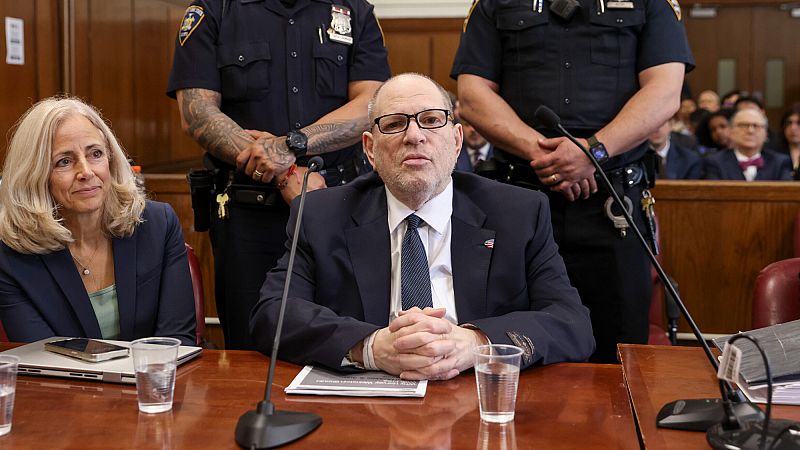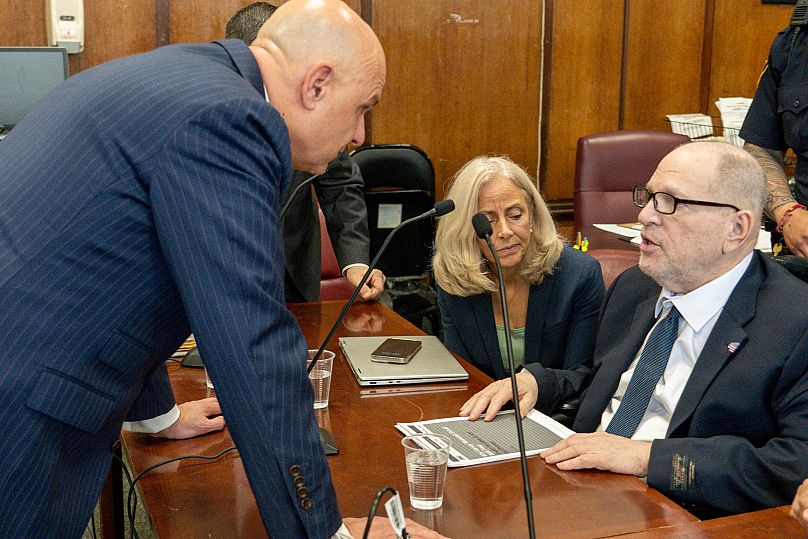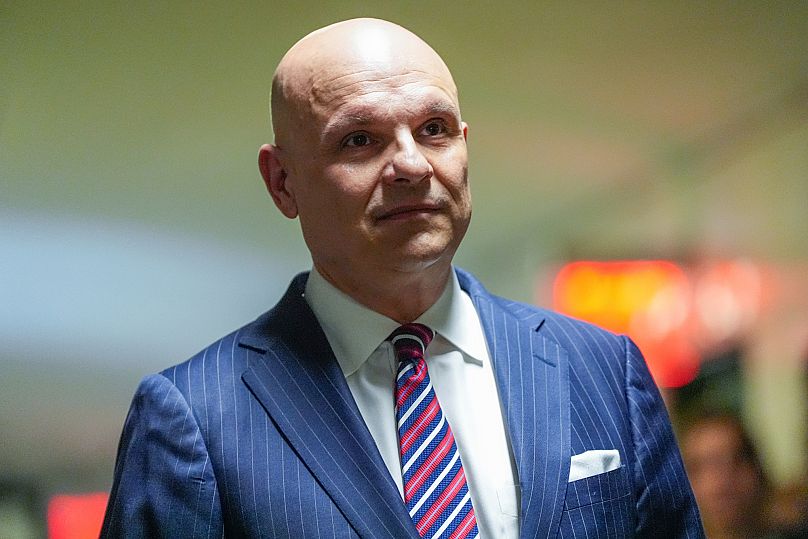Hearings have commenced in the renewed rape case against Harvey Weinstein, more than half a decade since his initial trial provided a harsh reality check for one of Hollywood’s top power brokers.
Highlighting the previous studio head’s once significant power within the film business, prosecutor Shannon Lucey stated that Weinstein utilized “aspirational chances” as tools to exploit the three women involved in the trial.
He faces charges of raping one individual and forcibly performing oral sex on the other two.
“The accused desired their compliance, and the more they pushed back, the more aggressively he became,” Lucey stated.
The trial is being reconvened as an appellate court overturned the significant conviction from 2020.
The second trial is taking place at the same Manhattan courthouse as the initial one, and it’s anticipated that two of the previous witnesses will come forward again.
The second trial involving Weinstein is unfolding at a distinct cultural juncture compared to the initial one, as it occurs after the peak of the #MeToo movement.
In addition to having the charges retried, he now confronts another accusation brought forth by a woman who was not part of the initial lawsuit.
Unlike the previous jury of seven men and five women who found him guilty in 2020, this one consists of seven women and five men, with a new judge presiding over the case.
The #MeToo movement, which exploded in 2017 with allegations against Weinstein, has also evolved and ebbed.
At the beginning of Weinstein’s initial trial, protesters outside were heard chanting “rapist.”
Television network vehicles filled the road, and journalists waited in line for hours to secure a spot inside the crowded courthouse.
His lawyers decried the “carnival-like atmosphere” and fought unsuccessfully to get the trial moved from Manhattan.
This time, over five days of jury selection, there was none of that.
Those realities, coupled with the New York Court of Appeals’ ruling last year vacating his 2020 conviction and 23-year prison sentence — because the judge allowed testimony about allegations Weinstein was not charged with — are shaping everything from retrial legal strategy to the atmosphere in court.
Weinstein, 73, is being retried on a criminal sex act charge for allegedly forcibly performing oral sex on a movie and TV production assistant, Miriam Haley, in 2006 and a third-degree rape charge for allegedly assaulting an aspiring actor, Jessica Mann, in a Manhattan hotel room in 2013.
Weinstein also faces a criminal sex act charge for allegedly forcing oral sex on a different woman at a Manhattan hotel in 2006.
Prosecutors said that the woman, who hasn’t been named publicly, came forward days before his first trial but wasn’t part of that case.
They said they revisited her allegations when his conviction was thrown out.
Weinstein has entered a plea of not guilty and strongly refutes any allegations of rape or sexual assault.
The not-guilty verdicts on the two most severe accusations from his 2020 trial — predatory sexual assault and first-degree rape — remain intact.
Lindsay Goldbrum, an attorney representing the anonymous accuser, stated that the retrial of Weinstein represents a “critical juncture in the struggle for responsibility in sexual assault cases,” and serves as a “sign to other victims that justice systems are progressing—and that it’s worthwhile to come forward despite seemingly overwhelming obstacles.”



